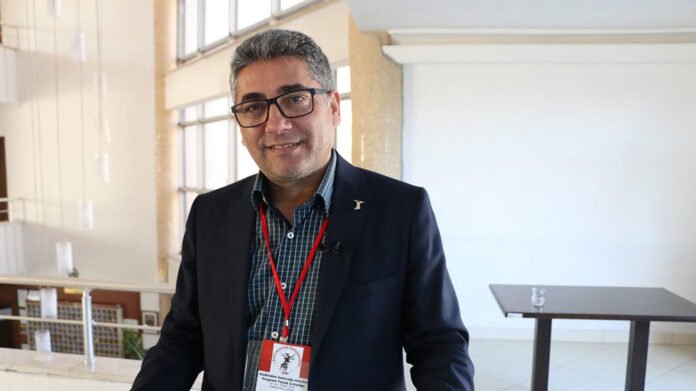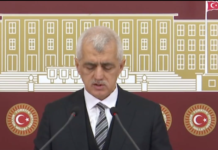Cuma Erçe, chairman of the Pir Sultan Abdal Cultural Association (PSAKD), a cultural and religious organization in Turkey that represents the Alevi community, is under investigation for allegedly “spreading misinformation,” “inciting hatred and enmity among the public” and “insulting a public institution”
According to the reporting of the Cumhuriyet daily, the investigation was initiated following an official complaint filed by Ali Rıza Özdemir, president of the government-affiliated Directorate of Alevi-Bektashi Culture and Cemevis. The charges were based on Erçe’s previous statements, in which he criticized the directorate for organizing gender-segregated events and allowing racist rhetoric during these gatherings.
Erçe had said gender segregation violated the principles of secularism and was also against Alevi tradition and beliefs.
The directorate was established in 2023 under the Ministry of Culture and Tourism, marking the first time the Turkish state officially recognized an institution dedicated to Alevi affairs. Its purposes include overseeing Alevi places of worship, promoting Alevi-Bektashi culture and traditions and addressing problems of the Alevi community.
However, some Alevi groups and organizations have criticized this institution, arguing that it is an attempt to bring Alevism under government control rather than promoting genuine religious freedom.
The PSAKD, however, is a community organization and is involved in advocating for religious freedom, fighting discrimination against Alevis and preserving Alevi traditions and beliefs. It also plays a role in organizing cultural events, commemorations and protests related to Alevi issues.
Erçe was summoned for questioning by the Ankara Chief Public Prosecutor’s Office as part of the ongoing investigation on February 24.
In a statement to the media, Erçe described the investigation as an attempt to exert political pressure on the Alevi community.
“This investigation clearly demonstrates the harm caused by the directorate on our community. The institution is disconnected from both the community and the principles of the Alevi faith. This man [Ali Rıza Özdemir] is exploiting the current political climate, in which key and influential figures are being targeted by the government, by filing a complaint against me and initiating legal proceedings,” he said.
Erçe added that the Alevi community has historically faced political pressure in Turkey. He noted that during every critical juncture in the country’s history, the Alevi community has been exploited in political propaganda to gain support from the majority Sunni population.
Alevis have historically been the largest religious minority group in Turkey, making up as much as 20 percent of Turkey’s 85-million-strong population. Incorporating Shiite, Sufi, Sunni and local traditions, Alevism is a strain of Islam that emerged in the Middle Ages.
Turkey has long denied the demands of Alevis for state recognition, and cemevis — places of worship and community gatherings for the followers of Alevism — are not officially recognized by the state.
Moreover, hate crimes against Alevi communities are common. Cemevis have occasionally been vandalized, with foul language and insults put on their walls.
The community has been under increasing political pressure and subject to discrimination under the rule of the Justice and Development Party (AKP), which has been in power since 2002.















